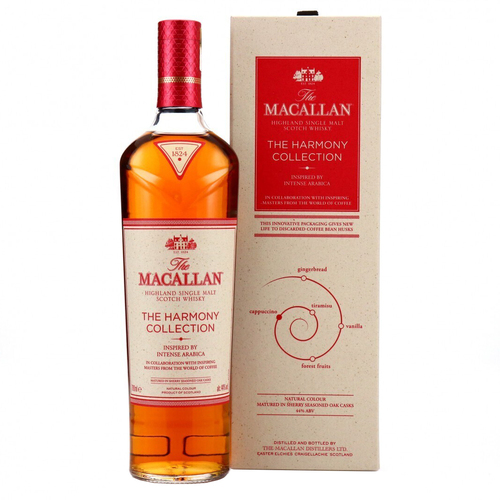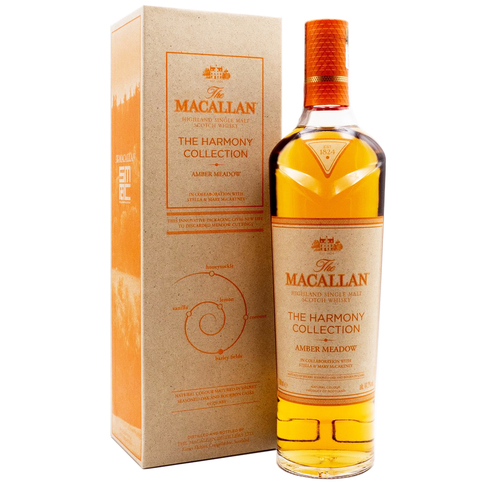Macallan The Harmony Collection Jing Phoenix Honey Orchid Tea
Single Malt Whisky, Speyside, Scotland
| Brand | Macallan |
| Distillery | Macallan |
| Region | Speyside |
| Age | NAS |
| Bottle Size | 700ml |
| Bottled Strength | 43.9% |
Help other users shop smarter by writing reviews for products you have purchased.
Macallan The Harmony Collection / Jing Inspired by Phoenix Honey Orchid Tea
Jing is the fifth release in an annual series from Macallan titled The Harmony Collection. Jing release introduces two Limited Edition expressions: Inspired By Phoenix Honey Orchid Tea and Inspired By Organic Cherrywood Lapsang Tea.
Jing is a collaboration between Macallan Whisky Mastery Team and with JING Tea, curators of some of the world's most distinctive and fine single garden teas.
Jing ‘Inspired By Phoenix Honey Orchid Tea’ is an exquisite Single Malt Whisky matured in a combination of sherry seasoned European and American oak casks, with a subtle inclusion of casks that previously held bourbon.
By focusing on sustainable packaging and in homage to the world of tea, Jing is presented in a 100% recyclable and biodegradable box which marks this deep connection with the land; waste tea leaves deemed unsuitable for consumption have been thoughtfully incorporated in the paper of the presentation box.
Tasting Notes
- Nose: Summery peach and apricot with the heady sweetness of floral honey all intertwined with tropical fruits, toffee and sweet oak.
- Taste: Fresh peaches in rich syrup, warm citrus and toffee, light floral notes leading to a delicate leafy astringency.
- Finish: Fruity, sweet and complex.
The Macallan was one of the first distillers in Scotland to be legally licensed. Since then, Macallan has built a reputation as one of the world’s leading single malt whiskies. The creation of The Macallan draws on the vital contributing influences of Spain, North America and Scotland - and of their respective natural raw materials, combined with traditional methods and craftsmanship.
The Macallan distillery was founded by Alexander Reid, a barley farmer and school teacher. The original name of the area was “Maghellan”, taken from the Gaelic word “magh”, meaning fertile ground and “Ellan”, from the Monk St.Fillan - who held a close association with the church that stood in the grounds of The Macallan Estate until 1400. Farmers had been making whisky on their Speyside farms in the area for centuries, using their surplus barley during the quieter winter months.







 Pay in 4 available
Pay in 4 available


